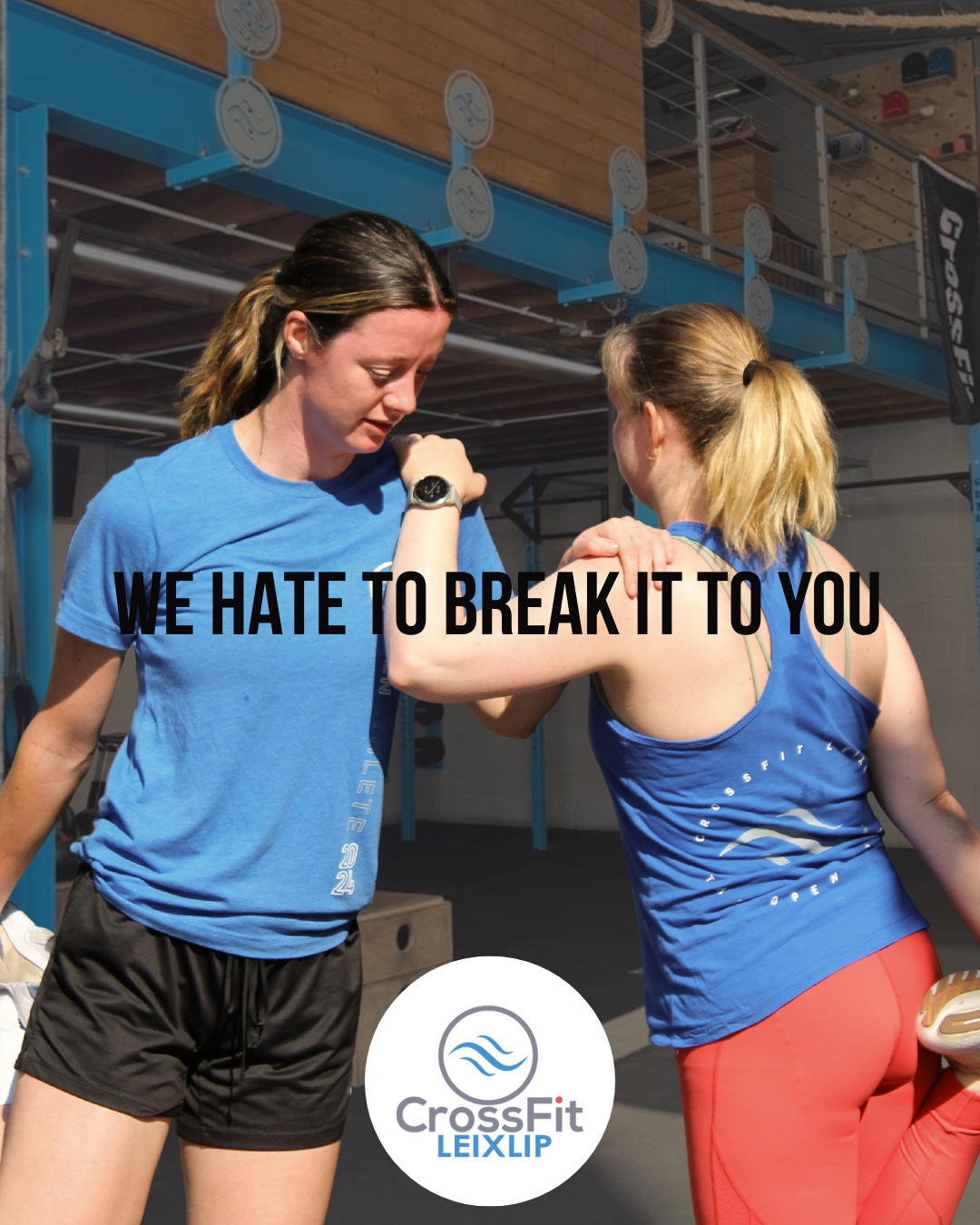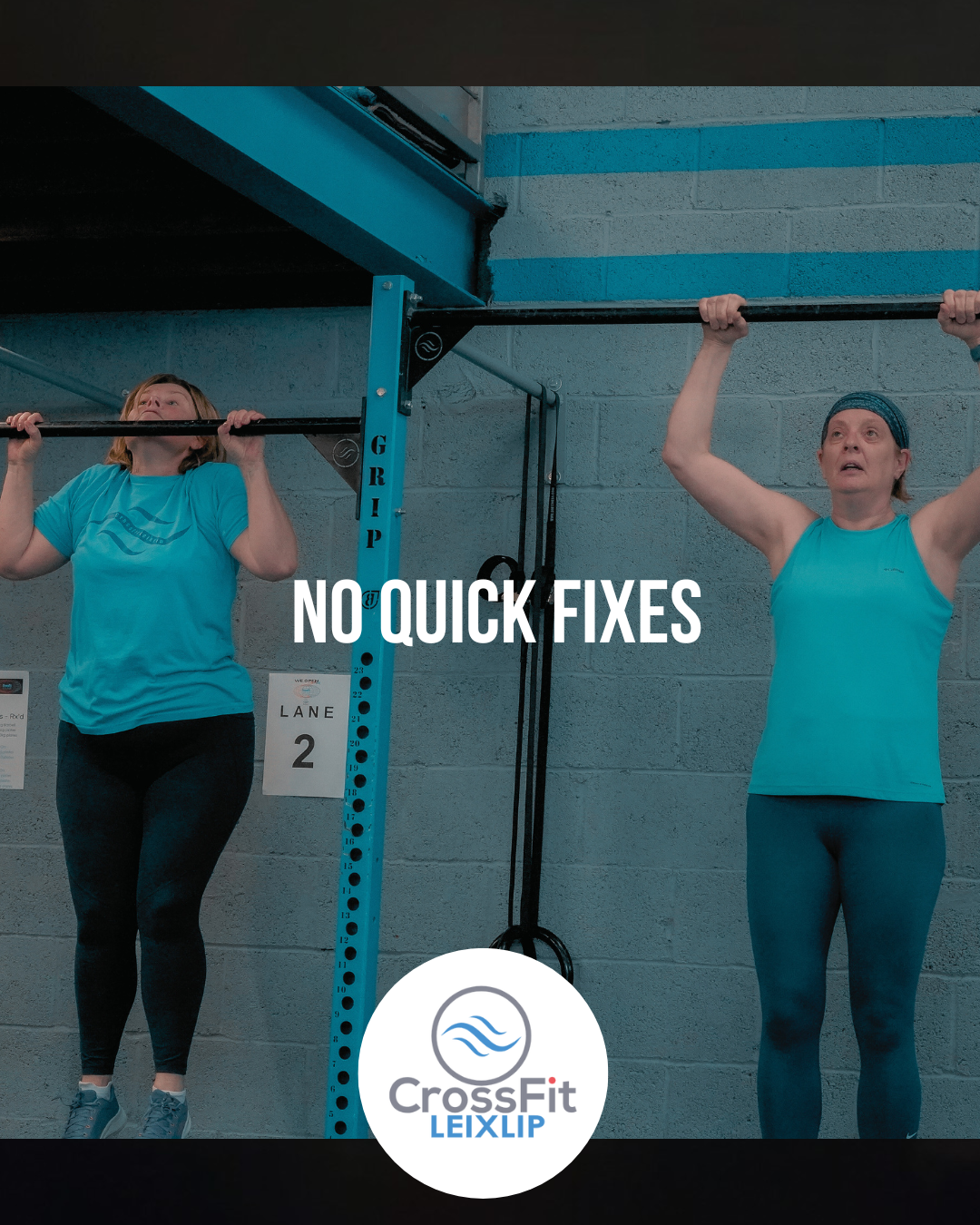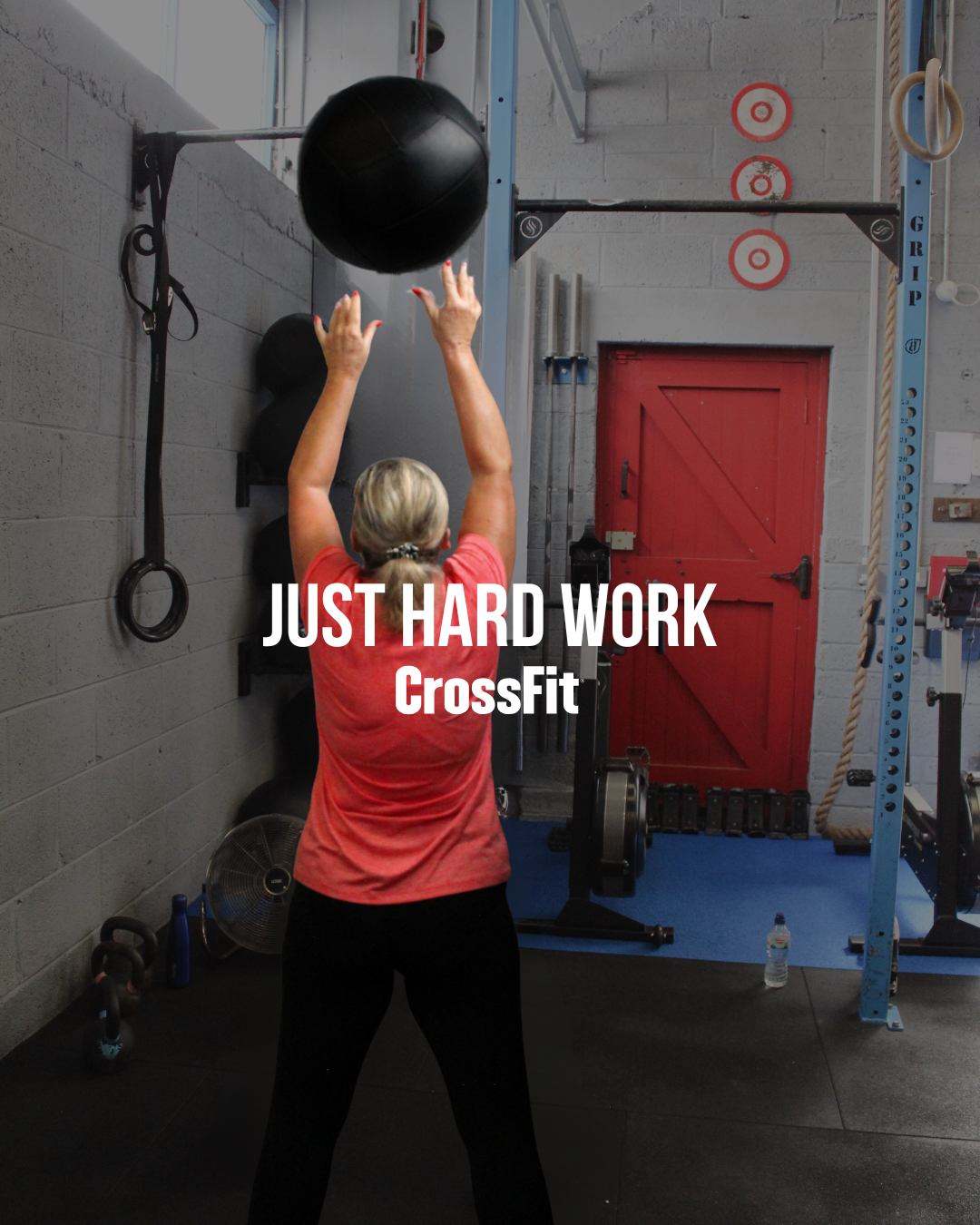
The CrossFit® Leixlip Community are supporting the Irish Physical Activity Alliance (IPAA) Proposals to Policy with Government.
For the first time, gyms and fitness facilities are at the centre of Ireland’s preventative healthcare conversation.
Follow, like, share and support the @ipaa_fit4life campaign on Instagram now!
Prevention That Actually Prevents
CrossFit has been asking — and answering — that question for over 20 years.
It starts with a bold and specific definition: fitness is increased work capacity across broad time and modal domains. This isn’t marketing fluff. It’s a quantifiable metric. And that matters, because what we measure, we manage.
The CrossFit Level 1 Training Guide, the cornerstone of the methodology, is clear: health is best assessed by measuring fitness over time [8]. If you are moving more weight, over varied durations, with greater speed and efficiency, you are getting fitter. And if you’re getting fitter, you’re becoming more resilient — physically, metabolically, and neurologically. Fitness is not done in a day’s work. It’s a journey that takes commitment, built on hard work and accepting that there are no shortcuts. CrossFit has no interest in fitness fads or cosmetic goals. The goal is capacity. Capacity is what keeps you off medications. It’s what allows you to carry your groceries at 85, to pick yourself up after a fall, to walk into your 90s with independence.
This isn’t abstract.
This is preventative medicine. You can see it on the whiteboard.

Predictive Value, Proven Daily
In traditional medicine, we chase lab values — cholesterol, A1C, blood pressure. These are lagging indicators, the final warning signs that something is wrong. By the time they appear, disease has often already taken hold.
CrossFit® focuses on leading indicators: movement patterns, power output, recovery time, coordination, balance, and stamina. These tell us how someone is performing now, and give us insight into how they’ll function later.
It’s not about rejecting data. It’s about tracking the right data.
Benchmark workouts like Fran, Cindy, and Murph aren’t random challenges. They are longitudinal diagnostics. Athletes and everyday people test them, retest them, and use the results to drive adaptation. It’s no different than titrating a medication — only instead of side effects, you get stronger.
And perhaps most importantly, you see results in real life. Better VO₂ max, reduced body fat, normalized blood sugar, improved mood, increased bone density and skeletal muscle. No co-pay required.

The Cultural Vaccine
There’s something else CrossFit® got right before the rest of the world: the power of culture.
As James Clear writes, “One of the most effective things you can do to build better habits is to join a culture where your desired behavior is the normal behavior.” [9] CrossFit isn’t just programming; it’s a culture engineered for behavior change. You show up, and you’re surrounded by people who care. Who cheer for your deadlift. Who ask where you’ve been when you miss class. These cultural leaders don’t just preach; they walk the walk and share in your struggle and effort. They dedicate their lives to a mission of helping people become healthier.
That accountability doesn’t exist in a doctor’s office.
In CrossFit®, it’s built into the DNA. A whiteboard. A timer. A coach who knows your name. A class full of people chasing the same thing: progress.

A Societal Pivot Point
We are not at a crossroads. We are at a pivot point. One direction leads deeper into the status quo — more spending, more sickness, more frustration. The other leads to capacity, autonomy, and community.
CrossFit® is not a quick fix. But it is a blueprint.
It is measurable.
It is observable.
It is repeatable.
It is scalable.
It is working.
We don’t need to invent a new system.
We need to recognize the one that’s already changing lives and bring it to the forefront of the public health conversation.
CrossFit® has always been more than fitness. It’s time the world sees it for what it really is: a cure for what’s broken.
.png)
The CrossFit® Leixlip Community are supporting the Irish Physical Activity Alliance (IPAA) Proposals to Policy with Government.
IPAA Key Asks:
- Tax Rebate for Gym Membership: Inclusion in Budget 2026.
- VAT Rate for Physical Activity: Align all physical activity services—including classes—under the 9% VAT rate, with the long-term aim of advocating for full recognition of physical activity as an essential healthcare measure, ultimately aligning it with other medical interventions at a 0% VAT rate.
- National Education Campaign: Centre around the National Physical Activity Guidelines, with a particular focus on strength training.
Working together we can change the health of the nation
For the first time, gyms and fitness facilities are at the centre of Ireland’s preventative healthcare conversation.
There are over 800,000 people in Ireland who use gym and fitness facilities - more than the GAA, rugby, and football combined. It’s time our contribution was recognised and supported.
Contact your local TD or Senator Search here:
- Tell them about your gym, the members, and what your gym means to your community.
- Tell them why the IPAA proposals must be implemented - for prevention, for progress, and for the health of the nation.
It only takes a few minutes, but your voice could be the difference in getting these policies included in Budget 2026.
This is our moment. Let’s make sure our voices are heard.
Footnotes
- How much is health spending expected to grow? (Kaiser Family Foundation; August 5, 2025) https://www.kff.org/slideshow/how-much-is-health-spending-expected-to-grow/. (Accessed August 7, 2025)
- Watson, K. B., Wiltz, J. L., Nhim, K., Kaufmann, R. B., Thomas, C. W., & Greenlund, K. J. (2025). Trends in multiple chronic conditions among US adults, by life stage, Behavioral Risk Factor Surveillance System, 2013–2023. Preventing Chronic Disease, 22, Article 240539. https://doi.org/10.5888/pcd22.240539
- Milbank Memorial Fund. (2024). The Health of U.S. Primary Care: 2024 Scorecard—No One Can See You Now. https://www.milbank.org/publications/the-health-of-us-primary-care-2024-scorecard-report-no-one-can-see-you-now
- Centers for Medicare & Medicaid Services. (2023). National health expenditure data: Prescription drugs. https://www.cms.gov/data-research/statistics-trends-and-reports/national-health-expenditure-data/nhe-fact-sheet
- Milbank Memorial Fund. (2024). The Health of U.S. Primary Care: 2024 Scorecard—No One Can See You Now. https://www.milbank.org/publications/the-health-of-us-primary-care-2024-scorecard-report-no-one-can-see-you-now
- Centers for Medicare & Medicaid Services. (2025, June 24). National health expenditure data: 2023 overview. U.S. Department of Health and Human Services. Retrieved from https://www.cms.gov/data-research/statistics-trends-and-reports/national-health-expenditure-data/nhe-fact-sheet
- Investopedia. (2024). Which industry spends the most on lobbying?. https://www.investopedia.com/investing/which-industry-spends-most-lobbying-antm-so/
- CrossFit, Inc. (2020). Level 1 Training Guide. CrossFit Journal. https://library.crossfit.com/free/pdf/CFJ_English_Level1_TrainingGuide.pdf
- Clear, J. (2018). Atomic Habits. Avery.
- Glassman, G. (2003, February 1). Seniors and Kids. CrossFit Essentials. https://www.crossfit.com/essentials/seniors-and-kids
ASK US A QUESTION:





.png)


